Unlocking Growth: The Marketer’s Guide to AI
Artificial Intelligence (AI) has transformed the marketing landscape, offering tools and insights that were previously unimaginable. For marketers, understanding AI is no longer optional—it’s essential. This comprehensive guide aims to demystifying AI and illustrate its impact, opportunities, and challenges within the marketing domain.
Introduction to AI in Marketing
Artificial Intelligence refers to the simulation of human intelligence processes by machines, especially computer systems. These processes include learning (the acquisition of information and rules for using the information), reasoning (using rules to reach approximate or definite conclusions), and self-correction. In marketing, AI can analyze consumer behavior and search patterns, and utilize data from social media and blog posts to help businesses understand how customers find their products and services.
The Evolution of AI in Marketing
AI has evolved from a futuristic concept to a practical tool used by businesses globally. Its journey can be traced back to the mid-20th century, but significant strides have been made in recent decades due to advancements in computing power, big data, and machine learning algorithms. Here’s a brief timeline in Demystifying AI:
- 1950s-1970s: Early AI concepts and experiments, focusing on basic problem-solving and symbolic methods.
- 1980s-1990s: Development of machine learning algorithms and expert systems, enabling computers to make decisions based on data.
- 2000s: Explosion of data availability and improvements in computational power, leading to more sophisticated AI applications.
- 2010s-present: Integration of AI into various business processes, including marketing, through tools like predictive analytics, natural language processing (NLP), and computer vision.
AI Applications in Marketing
AI’s applications in marketing are vast and diverse, ranging from customer insights to content creation. Here are some key areas where AI is making a significant impact:
1. Customer Segmentation and Personalization
AI enables marketers to segment customers more precisely and create personalized experiences. Machine learning algorithms analyze customer data to identify patterns and predict future behavior. This allows businesses to tailor their marketing messages to individual preferences, enhancing customer engagement and loyalty.
- Example: Netflix uses AI to recommend shows and movies based on a user’s viewing history. This personalization enhances the user experience and keeps subscribers engaged.
2. Predictive Analytics
Predictive analytics uses historical data to predict future outcomes. In marketing, this can mean forecasting sales, identifying potential leads, or determining the success of marketing campaigns. AI-driven predictive models can analyze vast amounts of data quickly, providing marketers with actionable insights.
- Example: Amazon uses predictive analytics to recommend products to users, increasing the likelihood of purchases and boosting sales.
3. Chatbots and Virtual Assistants
AI-powered chatbots and virtual assistants provide immediate, personalized responses to customer inquiries. They can handle a wide range of tasks, from answering frequently asked questions to guiding users through the purchasing process.
- Example: Sephora’s chatbot, Chat GPT and Google Gemini assists customers in finding products, booking appointments, and even providing beauty tips, enhancing the customer experience and driving sales.
4. Content Creation and Curation
AI tools can generate and curate content, saving marketers time and ensuring that content is relevant and engaging. Natural language generation (NLG) technologies can create written content, while machine learning algorithms can curate content based on user preferences.
- Example: The Washington Post uses an AI tool called Heliograf to generate news reports, enabling the newsroom to cover more stories efficiently.
5. Social Media Monitoring and Analysis
AI can analyze social media interactions to gauge public sentiment, track brand mentions, and identify trends. This helps marketers understand how their brand is perceived and adjust their strategies accordingly.
- Example: Tools like Brandwatch and Sprout Social use AI to provide insights into social media trends and audience sentiment, helping brands stay ahead of the curve.
6. Advertising and Media Buying
AI optimizes advertising efforts by automating the buying process and targeting ads more effectively. Programmatic advertising uses AI to buy ad space in real-time, ensuring that ads reach the right audience at the right time.
- Example: Google Ads uses AI to optimize ad placements and bidding strategies, maximizing the return on investment for advertisers.
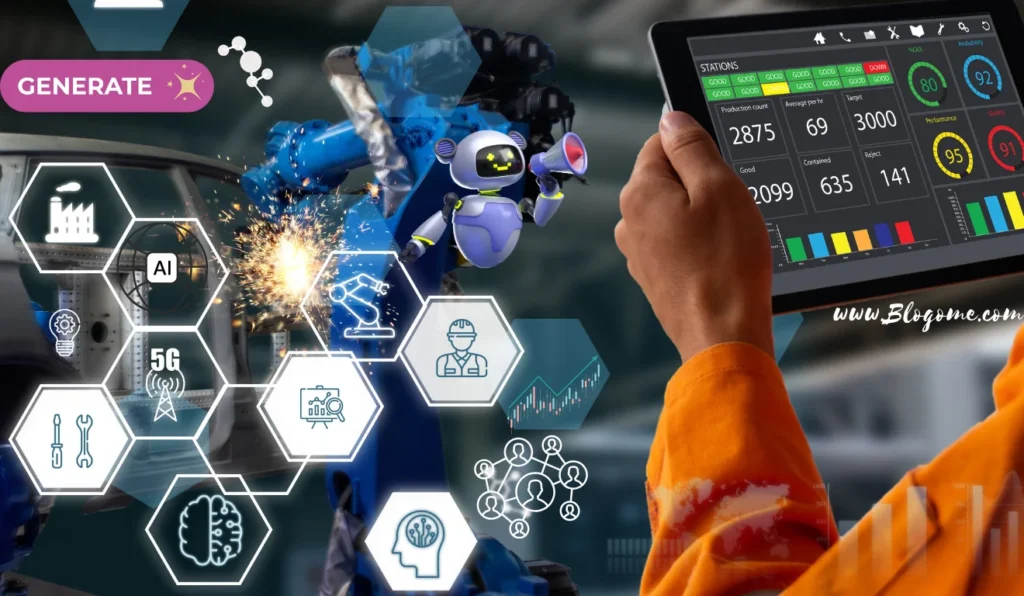
The Benefits of AI in Marketing
Integrating AI into marketing strategies offers several benefits:
1. Enhanced Efficiency
AI automates repetitive tasks, freeing up marketers to focus on strategic activities. This increased efficiency can lead to cost savings and faster execution of marketing campaigns.
- Example: Unilever uses AI to screen job applicants, speeding up the hiring process and reducing costs.
2. Improved Accuracy
AI-driven insights are based on data analysis, reducing the likelihood of human error. This leads to more accurate predictions and better decision-making.
- Example: John Deere uses AI to predict equipment failures, minimizing downtime and enhancing productivity.
3. Greater Personalization
AI enables hyper-personalization, allowing marketers to deliver tailored experiences to individual customers. This can lead to higher engagement and conversion rates.
- Example: Coca-Cola uses AI to personalize digital advertising, resulting in more effective campaigns.
4. Real-Time Insights
AI provides real-time data analysis, enabling marketers to respond quickly to changing market conditions and customer preferences.
- Example: IBM Watson provides real-time analytics to help businesses make data-driven decisions.
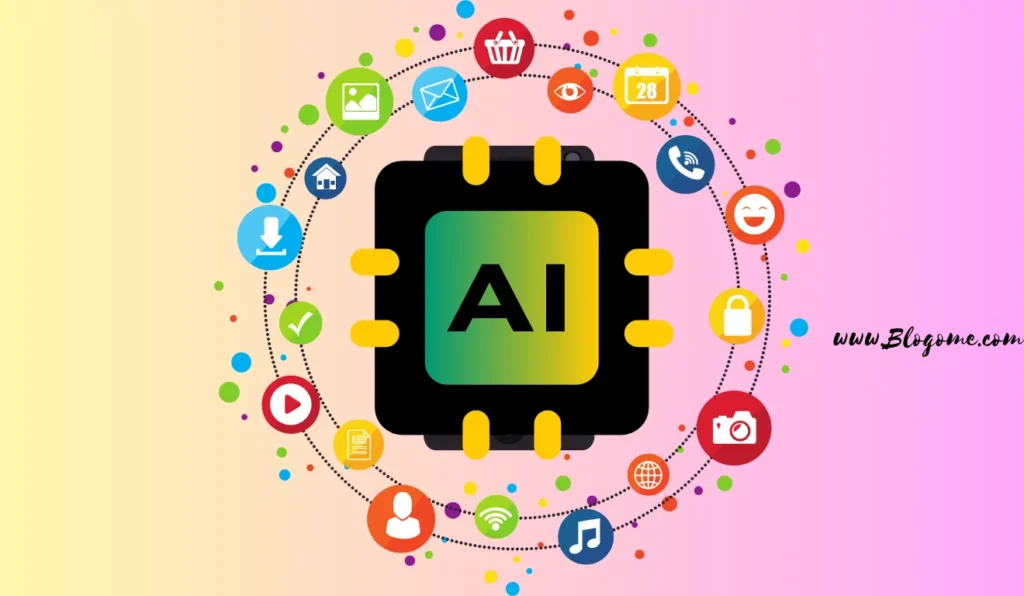
Challenges and Considerations
Despite its benefits, implementing AI in marketing comes with challenges:
1. Data Privacy and Security
AI relies on large amounts of data, raising concerns about data privacy and security. Marketers must ensure that they comply with regulations such as the General Data Protection Regulation (GDPR) and implement robust security measures to protect customer data.
- Example: Facebook faced significant backlash and regulatory scrutiny over data privacy issues, highlighting the importance of stringent data protection measures.
2. Integration with Existing Systems
Integrating AI tools with existing marketing systems can be complex and require significant resources. Businesses need to invest in the right infrastructure and ensure that their teams are trained to use AI effectively.
- Example: A small e-commerce business may struggle to integrate an advanced AI recommendation system due to resource constraints.
3. Ethical Considerations
AI can perpetuate biases present in the data it is trained on, leading to ethical concerns. Marketers must be vigilant in monitoring AI outputs and addressing any biases that may arise.
- Example: Amazon had to scrap an AI recruiting tool that was biased against women, demonstrating the need for ethical oversight in AI development.
4. High Initial Costs
Implementing AI solutions can be expensive, especially for small businesses. However, the long-term benefits often justify the initial investment.
- Example: A startup might find it challenging to afford an AI-driven marketing platform initially, but the investment can pay off in increased sales and efficiency over time.
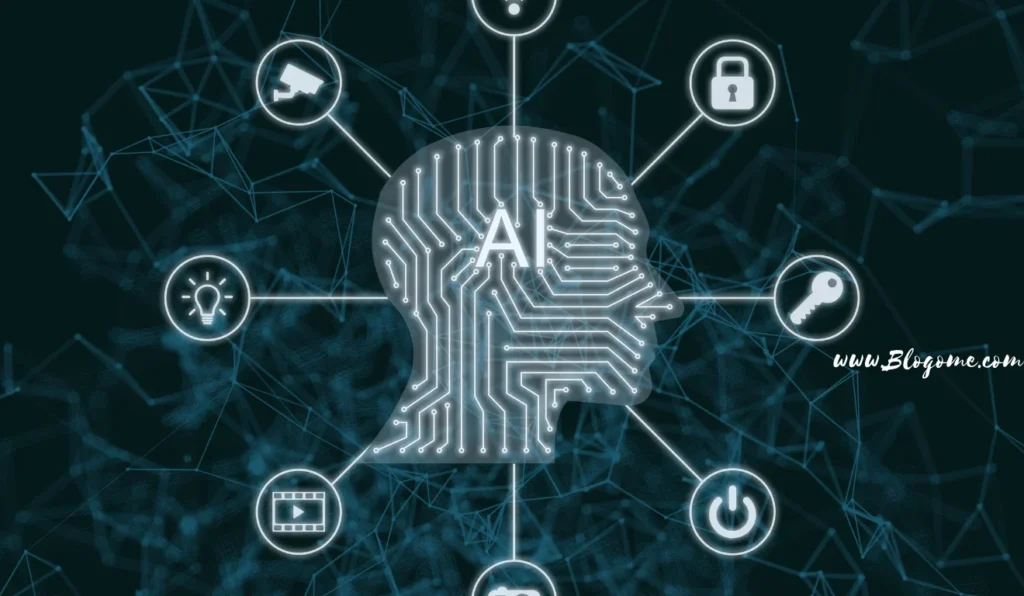
Future Trends in AI Marketing
The future of AI in marketing is promising, with several emerging trends set to shape the industry:
1. AI-Driven Creative Processes
AI is increasingly being used in creative processes, from designing ad campaigns to generating content ideas. As AI becomes more sophisticated, its role in creativity will expand, enabling marketers to push the boundaries of innovation.
- Example: Adobe’s Sensei AI platform helps designers create visuals and marketing materials more efficiently.
2. Enhanced Customer Experience
AI will continue to enhance the customer experience by providing more personalized and interactive interactions. Virtual and augmented reality, powered by AI, will create immersive experiences that engage customers in new ways.
- Example: IKEA uses AR and AI to allow customers to visualize furniture in their homes before making a purchase.
3. Voice Search Optimization
With the rise of voice-activated devices, optimizing for voice search is becoming crucial. AI will play a key role in understanding and processing natural language, helping marketers optimize their content for voice queries.
- Example: Domino’s Pizza uses AI to allow customers to order pizza via voice commands through their smart devices.
4. Increased Automation
Automation will extend beyond basic tasks to more complex processes, such as campaign management and strategy development. AI-driven automation will enable marketers to execute sophisticated campaigns with minimal manual intervention.
- Example: HubSpot uses AI to automate email marketing campaigns, improving efficiency and effectiveness.
5. Ethical AI
As AI becomes more prevalent, there will be a greater focus on ethical AI practices. Marketers will need to ensure that their AI systems are transparent, fair, and accountable, fostering trust with their customers.
- Example: Google has committed to ethical AI practices, emphasizing the need for transparency and fairness in AI development.
Case Studies: AI Success Stories in Marketing
To illustrate the impact of AI in marketing, let’s look at a few case studies of companies that have successfully leveraged AI:
1. Starbucks
Starbucks uses AI to enhance the customer experience through its mobile app. The app’s AI-driven personalization engine recommends products based on past purchases, preferences, and even weather conditions. This personalization has led to increased customer engagement and sales.
- Example: Starbucks‘ AI-driven recommendation system might suggest a hot drink on a cold day based on the customer’s past preferences, enhancing customer satisfaction and driving sales.
2. Coca-Cola
Coca-Cola uses AI to analyze social media data and understand consumer sentiment. By leveraging AI-powered insights, the company can tailor its marketing campaigns to resonate with its audience, improving brand loyalty and customer satisfaction.
- Example: Coca-Cola’s AI system might detect a surge in positive mentions about a new flavor on social media, prompting the company to ramp up its marketing efforts for that product.
3. Nike
Nike uses AI to optimize its supply chain and personalize customer experiences. The company’s AI-driven recommendation engine suggests products based on customer preferences and behavior, leading to higher conversion rates and customer satisfaction.
- Example: Nike’s app may suggest running shoes to a user who has recently purchased running gear, increasing the likelihood of additional purchases.
4. Spotify
Spotify uses AI to curate personalized playlists for its users. By analyzing listening habits and preferences, Spotify’s AI algorithms create customized playlists that keep users engaged and subscribed to the service.
- Example: Spotify’s “Discover Weekly” playlist uses AI to analyze a user’s listening history and preferences, introducing them to new music they are likely to enjoy.

How to Get Started with AI in Marketing
For marketers looking to integrate AI into their strategies, here are some steps to get started:
1. Define Your Objectives
Identify the specific goals you want to achieve with AI, whether it’s improving customer segmentation, automating content creation, or optimizing ad placements. Clear objectives will guide your AI strategy and help you measure success.
- Example: A retail company might aim to use AI to reduce cart abandonment rates by personalizing email follow-ups.
2. Assess Your Data
AI relies on data, so it’s crucial to assess the quality and quantity of your existing data. Ensure that your data is clean, relevant, and sufficient to train AI models effectively.
- Example: A travel agency should ensure it has comprehensive data on customer preferences and booking history before implementing an AI recommendation system.
3. Choose the Right Tools
There are numerous AI tools available, each with its strengths and weaknesses. Research and select tools that align with your objectives and integrate seamlessly with your existing systems.
- Example: A small business might choose an AI-powered CRM like Salesforce Einstein to streamline customer relationship management.
4. Build a Skilled Team
AI implementation requires a combination of technical and marketing expertise. Build a team that includes data scientists, AI specialists, and marketers who can work together to leverage AI effectively.
- Example: A financial services firm might hire a data scientist to analyze customer data and develop AI-driven marketing strategies.
5. Start Small and Scale
Begin with pilot projects to test the effectiveness of AI in your marketing strategy. Analyze the results, learn from the experience, and gradually scale up your AI initiatives as you gain confidence and expertise.
- Example: A fashion retailer might start with an AI-driven chatbot for customer service before expanding to AI-powered product recommendations.
Conclusion
AI is revolutionizing the marketing landscape, offering unprecedented opportunities for efficiency, personalization, and innovation. By understanding the fundamentals of AI and its applications, marketers can harness its power to enhance their strategies and drive business growth. As AI continues to evolve, staying informed and adaptable will be key to leveraging its full potential and staying ahead in the competitive marketing world.
Embracing AI is not just about adopting new technologies; it’s about transforming how you connect with your customers and delivering value in ways that were previously unimaginable. The journey of demystifying AI is ongoing, and the future holds even more exciting possibilities for marketers ready to explore and innovate.


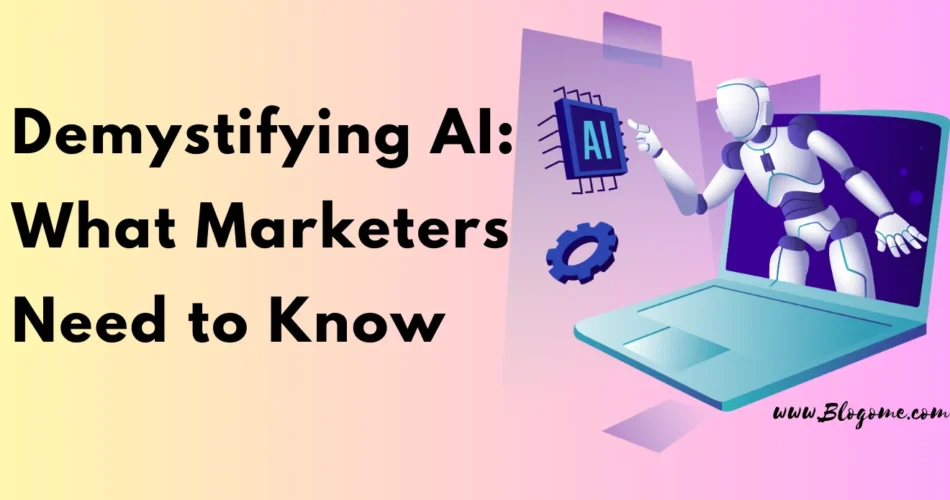
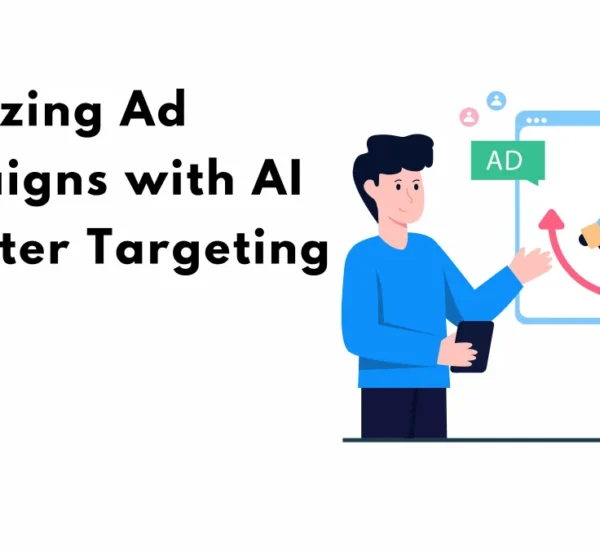
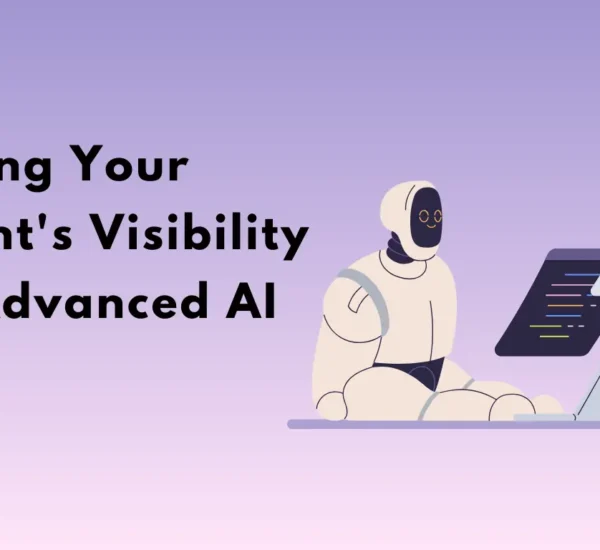
Interesting topic on Ai.